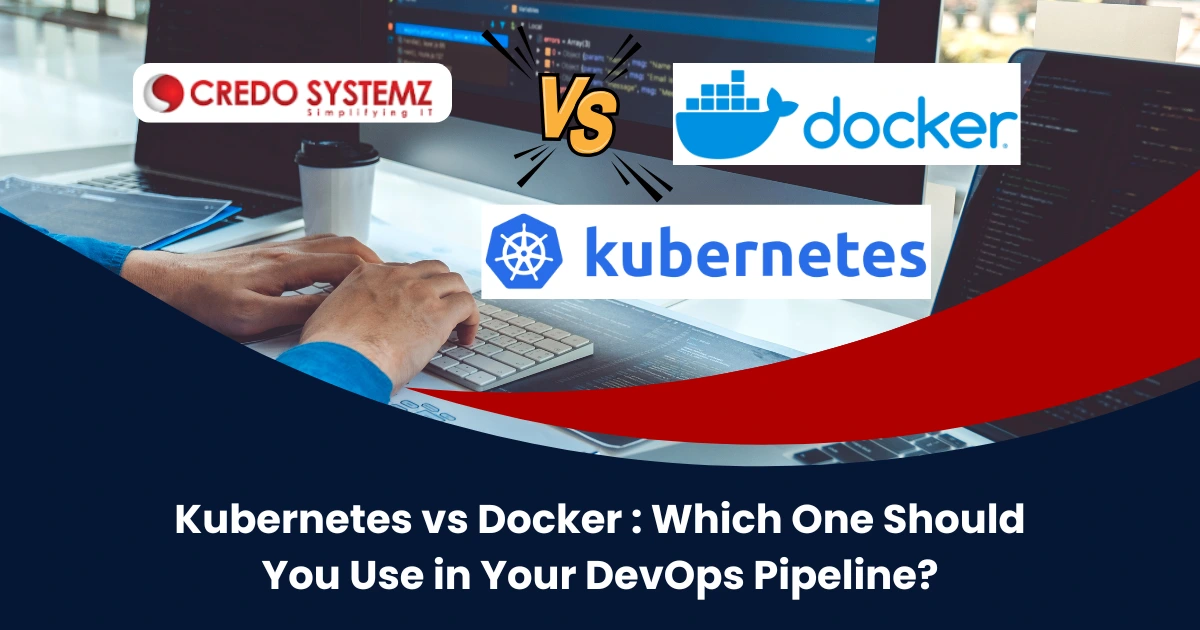
Introduction
As the adoption of DevOps practices increase in software development, the Kubernetes and Docker are crucial for building efficient and automated deployment pipelines. They are related to containerization but serve different purposes in a DevOps pipeline.
What is Docker?
Docker is a containerization platform which is used to package applications and their dependencies into portable containers. The containers can run consistently across different environments, from development to production. It is used in the DevOps pipeline to perform more efficient and consistent application deployment.
Key Features of Docker:
Docker packs applications into lightweight and portable containers with:
- Faster deployment and scaling
- Local development and testing easily
It works well with microservices architecture.
What is Kubernetes?
Kubernetes is an open-source container orchestration platform that automates the process of deployment, scaling, and management of containerized applications. It helps to handle complex containerized environments efficiently. Kubernetes is used in DevOps pipelines to handle containerized applications by automating, managing and scaling them.
Key Features of Kubernetes:
Kubernetes automates and optimize containerized applications by performing:
- Automated container deployment and scaling
- Load balancing and self-healing
- Rolling updates and rollbacks
- Works well with multi-cloud and hybrid cloud environments
Key Differences Between Kubernetes and Docker
| Feature | Docker | Kubernetes |
|---|---|---|
| Primary Function | Containerization | Container Orchestration |
| Ease of Use | Simple setup and use | Complex but powerful |
| Scaling and load balancing | Manual scaling and limited load balancing | Auto-scaling and load balancing |
| Networking | Simple networking with Docker Compose | Advanced networking and service discovery |
| Storage | Persistent storage | Supports persistent storage with volumes |
| Self-Healing | Manual intervention required | Automatically replaces failed containers |
| Deployment Complexity | Easy to start with | Steeper learning curve |
| Monitoring & Logging | Basic logging | Built-in monitoring and logging tools |
Uses of Docker and Kubernetes in DevOps Pipeline
To package and deploy applications quickly, use docker in the early stages of DevOps. It is an easy-to-use container tool which does not require advanced orchestration for small applications.
Kubernetes is suitable to handle large, complex microservices-based applications. It is suitable for automated scaling, load balancing, and self-healing capabilities kubernetes can manage multiple containers across different environments.
Best Approach
The best practice of DevOps teams is to use Docker for containerization and Kubernetes for orchestration. Docker creates the containers by breaking the application and Kubernetes ensures they run efficiently at scale.
Job Roles Related To Docker and Kubernetes
In the DevOps, Cloud, and Software Development field, Docker and Kubernetes are widely used for container orchestration. The various job roles available with expertise in these technologies are:
- DevOps Engineer
- Kubernetes Administrator
- Cloud Engineer
- Platform Engineer
- Site Reliability Engineer
- Security Engineer( Container Security)
Wrapping up
To sum up, “>Credo Systemz OMR, Credo Systemz Velachery to kick-start or uplift your career path.
